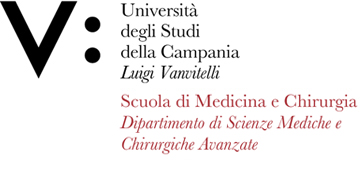Mariantonietta PISATURO
Insegnamento di INFECTIOUS DISEASES
Corso di laurea magistrale a ciclo unico in MEDICINA E CHIRURGIA
SSD: MED/17
CFU: 6,00
ORE PER UNITÀ DIDATTICA: 60,00
Periodo di Erogazione: Primo Semestre
Italiano
| Lingua di insegnamento | INGLESE |
| Contenuti | Insegnamento delle più importanti Malattie Infettive (batteriche, virali, protozoarie, fungine, parassitarie) e delle principali sindromi infettive (polmoniti, endocarditi, sepsi, meningiti, encefaliti, diarree, etc). |
| Testi di riferimento | Mandell, Douglas, and Bennett's Principles and Practice of Infectious Diseases, 9th Edition |
| Obiettivi formativi | Il corso di malattie infettive prevede l’apprendimento delle principali malattie infettive. |
| Prerequisiti | Conoscenza della semeiotica clinica, microbiologia e biochimica clinica |
| Metodologie didattiche | lezioni frontali con presentazione casi clinici |
| Metodi di valutazione | colloquio orale: lo studente dovrà dimostrare di aver appreso l’epidemiologia, l’eziopatogenesi, la presentazione clinica, la diagnosi e la terapia delle malattie infettive oggetto del programma del corso |
| Programma del corso | EPATITI VARALI ACUTE (HAV; HBV, HCV, HDV, HEV) |
English
| Teaching language | English |
| Contents | Teaching of the most important Infectious Diseases (bacterial, viral, protozoal, fungal, parasitic) and the main infectious syndromes (pneumonia, endocarditis, sepsis, meningitis, encephalitis, diarrhea, etc). |
| Textbook and course materials | Mandell, Douglas, and Bennett's Principles and Practice of Infectious Diseases, 9th Edition |
| Course objectives | The infectious diseases course involves learning about the main infectious diseases. |
| Prerequisites | Knowledge of clinical semeiotics, microbiology and clinical biochemistry |
| Teaching methods | frontal lessons with clinical case presentations |
| Evaluation methods | oral interview: the student will have to demonstrate that he/she has learned the epidemiology, etiopathogenesis, clinical presentation, diagnosis and therapy of infectious diseases covered by the course program |
| Course Syllabus | ACUTE VARAL HEPATITIS (HAV; HBV, HCV, HDV, HEV) |








